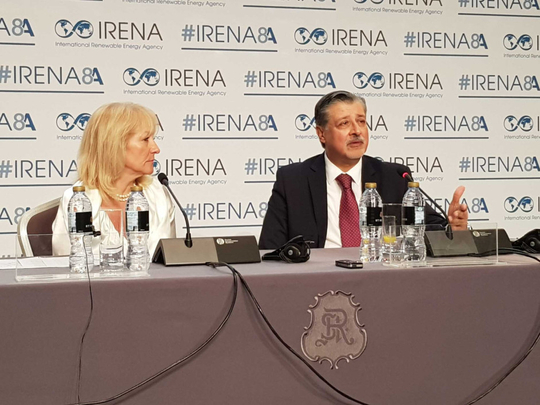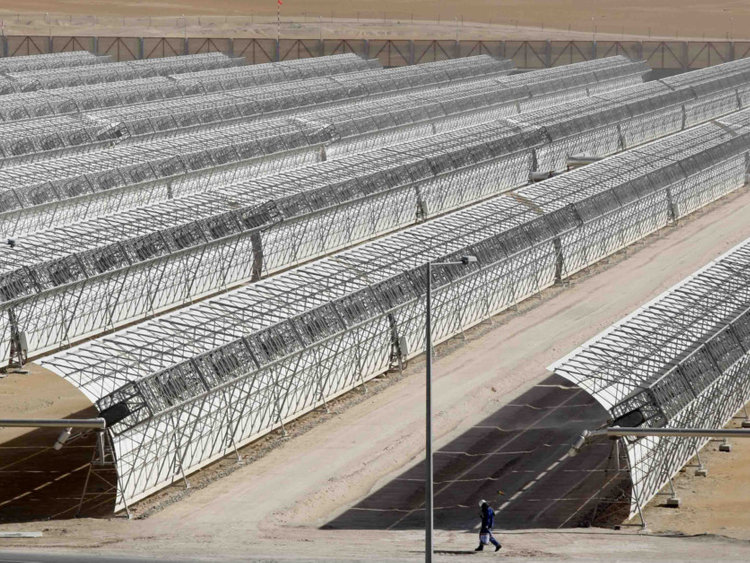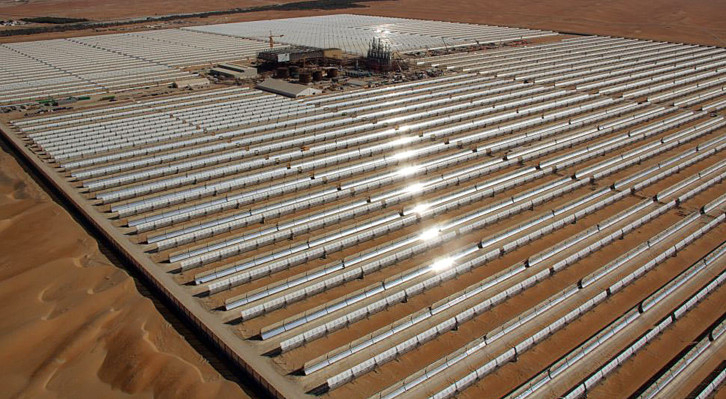
Abu Dhabi: The Abu Dhabi Sustainability Week kicked off in the capital on Saturday with top experts announcing at the eighth session of the International Renewable Energy Agency’s general assembly that the world now has the capacity to generate more than 2,000 gigawatts of renewable energy.
It is the ambitions deployment of renewable energy, coupled with energy efficiency measures, that could help achieve 90 per cent of the energy-related carbon emissions reductions needed by 2050, added Adnan Z Ameen, director general at the Irena.
“In order to reach this level of decarbonisation [however], the share of renewable energy needs to increase from around 15 per cent of the primary energy supply in 2015 to 65 per cent in 2050,” Ameen said.
“It is oil — producing countries that are taking the lead in many of these instances. The UAE has probably had one of the most progressive renewable policies in the world. If countries that have built their wealth on hydrocarbons now have the vision to look at the future in a new way, that signals that the world of energy is indeed changing very fast,” he added.
The two-day Irena assembly, which is being attended by 1,100 government representatives from 150 member states, will lead into the other conferences, exhibitions and events of the ADSW. These include the World Future Energy Summit, the award ceremony for the prestigious Zayed Future Energy Prize, the International Water Summit and the Ecowaste Exhibition.
The outlook for a sustainable future, led by renewable sources at its heart, was particularly positive at the Irena assembly. Statistics showed that more than $1 trillion (Dh3.67 trillion) has been invested into renewable energies since 2013, and that investment in new renewables capacity has been about twice the investment in fossil fuel generation for five years in a row.
“In 2016, renewable energy capacity increased by a record 162 gigawatts, and renewable power generation currently meets roughly a quarter of global electricity demand,” Ameen said.
The sustainability of renewable energy is also underpinned by cost reductions, brought about by advancing technologies, increasingly decentralised distribution and energy auctions.
“The average cost of power generation from solar photovoltaic sources has fallen by about 75 per cent since 2010, and it could fall a further 40 per cent in the next two years, thus making it the lowest cost form of power generation available. In fact, our trajectory of cost reductions shows that by 2020, every form of renewable energy power will be available at a cost competitive with the cost of power generated from fossil fuel sources,” the director general said.
It is such positivity that has prompted the UAE to increase its renewable energy targets, said Thani Ahmad Al Zeyoudi, UAE Minister of Climate Change and Environment.
“By 2020, we aim to produce 27 per cent of our total energy, up from a planned 24 per cent,” Al Zeyoudi said while addressing the assembly.
“Last year the UAE also adopted its Energy 2050 strategy, which aims to increase clean energy to 50 per cent of total energy production, including 44 per cent from renewable energy sources,” the minister added.
The development of the renewable energy sector also brings with it significant employment opportunities, with the sector currently providing 9.8 million jobs worldwide. This figure is expected to rise to 26 million by 2050.














